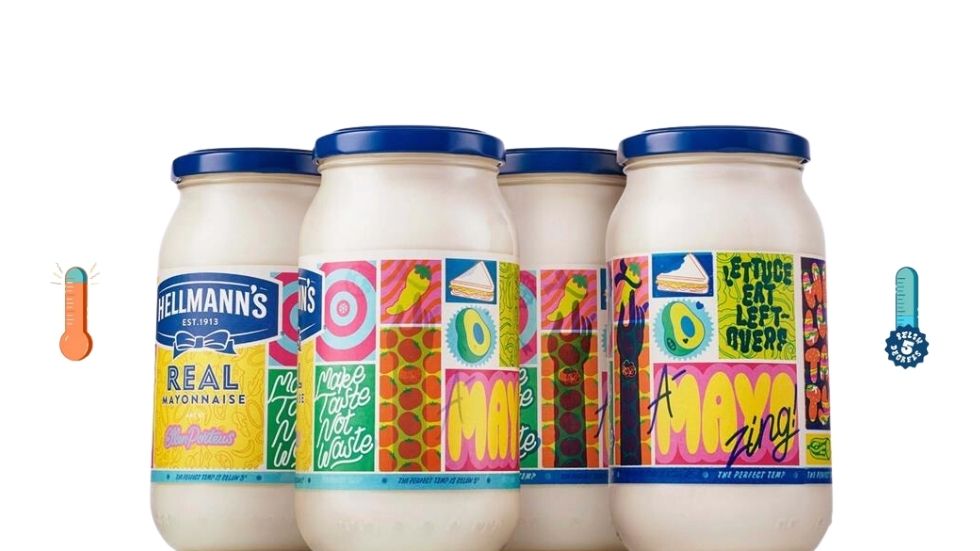As shopper behaviour changes due to inflationary hikes, some brands are creating marketing campaigns in response to the increasing cost of living, by demonstrating how they can add value for shoppers – including Hellmann’s mayonnaise.
Hellmann’s campaigns are focused on helping shoppers reduce food waste and save money – their most recent innovative campaign is trialling a special edition ‘Smart Jar’, which can tell the consumer when their fridge is at the right temperature and potentially prevent food waste. By using temperature-sensitive ink, the label design changes when the fridge is set below 5℃ to reveal a hidden layer. Certain foods can last up to three days longer in a fridge set below 5℃ (vs 7℃), including milk – one of the most wasted food products in fridges.
Similarly, Hellmann’s COOK CLEVER WASTE LESS campaign features weekly website tips from famous culinary people on how to help make cooking easier and top food waste hacks. Food waste also has major environmental impacts. Wasting less food saves shopper’s money, creating a win-win campaign with a sustainability and cost-savings focus. By embarking on a campaign aimed at building awareness of food waste, Hellmann’s is showing a real commitment to the issue.
What’s the innovation?
This campaign, and the purpose driven focus of key Unilever brands, has caused some controversy, especially with a few vocal investors questioning its relevance. That debate is a big one and, in the end, as with all purpose campaigns, time and the consumer will determine its strength and contribution to long term, sustainable success. (Check out The British Brands Group’s 18th Annual Brands Lecture where Gary Coombe, CEO of Gillette discussed the impact of their first purpose-led campaign).
The labelling innovation is a neat way of signposting the broader campaign and the fact it fits into a current and growing debate gives it some real time relevance. Thinking at a purely brand and category level there is no reason why this does not have the potential to build distinctiveness and relevance for Hellmann’s in a sea of potentially undifferentiated mayonnaise! It’s an example of what brands do! Consumers are increasingly conscious of waste and value and this work neatly ties the product itself directly to a small solution to the problem. There is no over promise and the fact the branded product itself is part of the purpose allows it to deliver a dual benefit. It promises great tasting food and the chance to do the right thing.
Read more: hellmanns.com/uk/cook-clever-waste-less

